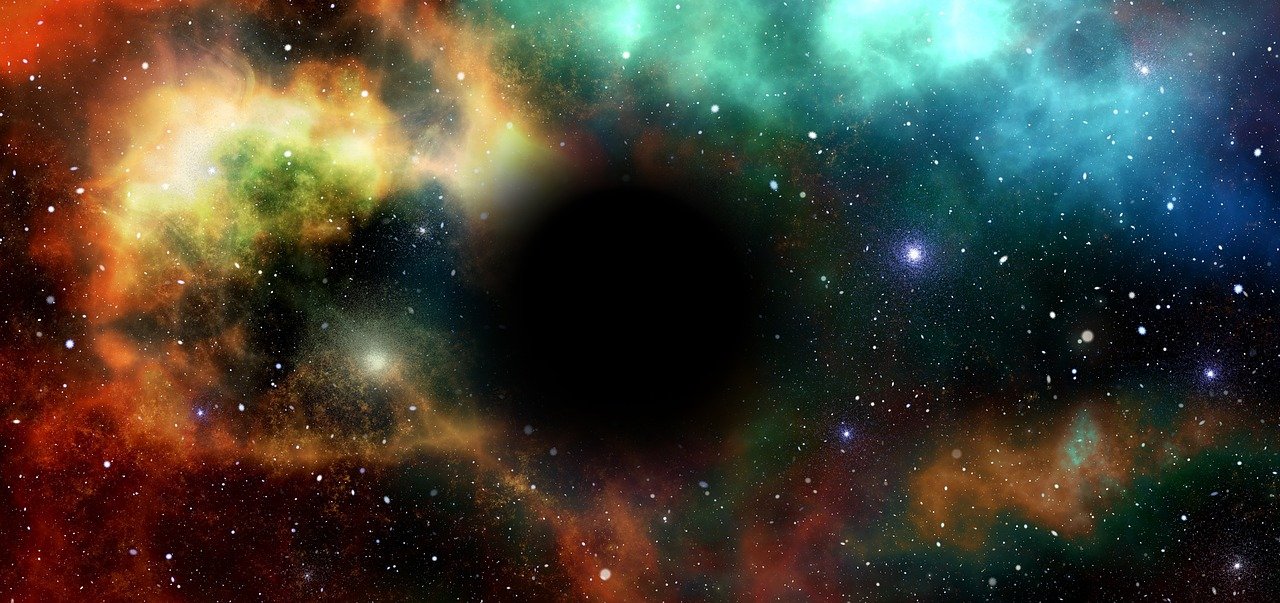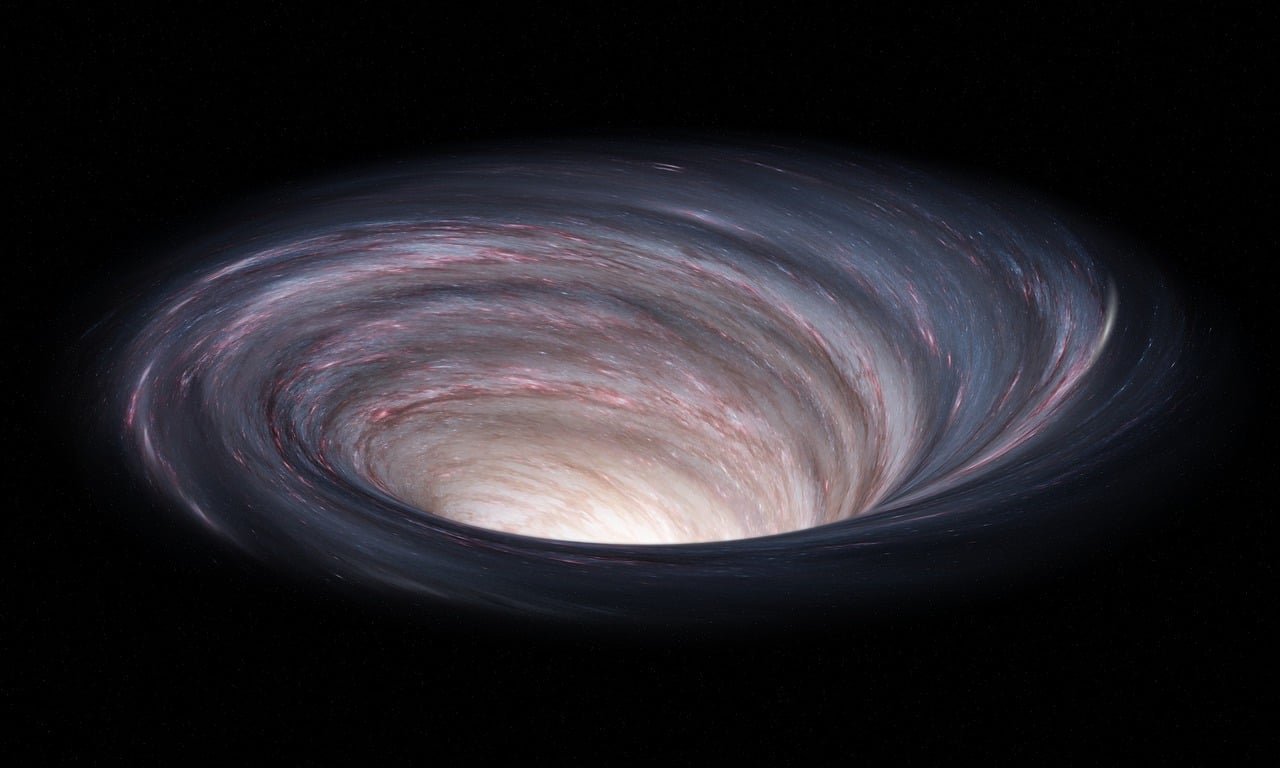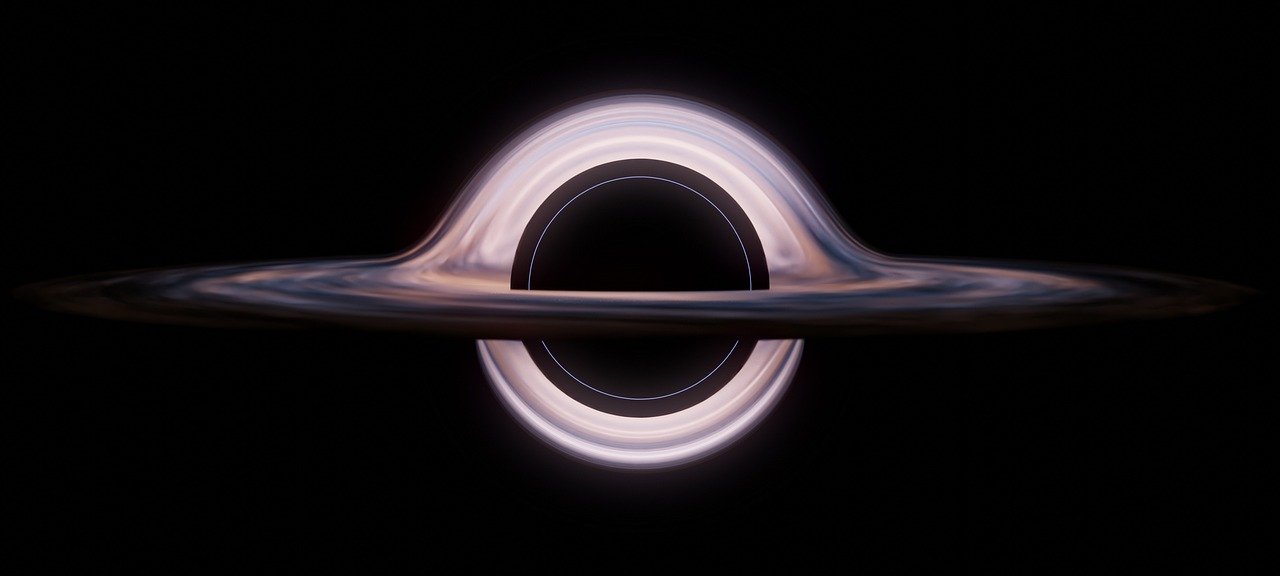Imagine embarking on a captivating journey, delving into the mysteries of the universe and exploring the enigmatic phenomenon of black holes. In this article, we will embark on a fascinating odyssey into the unknown as we unravel the role of black holes in cosmology. Prepare to be mesmerized as we delve into the depths of these cosmic wonders and unravel the secrets they hold, offering profound insights into the nature of our universe. Join us on this thrilling adventure as we navigate through the vastness of space and unlock the mysteries of black holes. Get ready to be awestruck and amazed at what lies beyond our imagination.

1. What is Cosmology?
1.1 The study of the universe
Cosmology is the scientific study of the universe, its origins, its structure, and its evolution. It is a field that explores the fundamental nature of reality on a cosmic scale, seeking to understand the vast expanse of space and time that surrounds us.
1.2 The origins of cosmology
The origins of cosmology can be traced back to ancient civilizations, where people looked up at the night sky and wondered about the nature of the stars and planets. Over time, as our understanding of the world grew, so did our curiosity about the larger universe. Early cosmological theories were often intertwined with religious or mythological beliefs, with many cultures attributing the creation of the universe to divine beings.
1.3 The different branches of cosmology
Today, cosmology is a complex and interdisciplinary field that encompasses various branches of study. Observational cosmology focuses on collecting and analyzing observational data to understand the structure and evolution of the universe. Theoretical cosmology involves using mathematical and computational tools to develop models and theories that explain various cosmological phenomena. Other branches include physical cosmology, which studies the physical laws governing the universe, and cosmogony, which explores the origins and formation of celestial bodies.
2. Understanding Black Holes
2.1 Definition and properties of black holes
Black holes are fascinating and mysterious objects that have captured the imagination of scientists and the public alike. They are regions in space where matter has collapsed under its own gravitational pull, creating a region with an incredibly strong gravitational field. The gravitational force within a black hole is so intense that nothing, not even light, can escape its grasp, hence the name “black hole.” This phenomenon is described by the event horizon, which is the point of no return beyond which anything that enters can never escape.
2.2 Formation of black holes
Black holes can form through various processes. One common way is through the collapse of massive stars at the end of their life cycle. When a massive star exhausts its nuclear fuel, it undergoes a supernova explosion, resulting in a dense core called a stellar remnant. If the core’s mass exceeds a certain threshold, known as the Chandrasekhar limit, it continues collapsing under gravity, eventually forming a black hole. Another mechanism for black hole formation is the mergers of smaller black holes, leading to the creation of more massive black holes.
2.3 Types of black holes
Black holes come in different sizes and types. Stellar black holes typically have masses several times that of our Sun, and they are the most common type of black holes in the universe. Supermassive black holes, on the other hand, have masses millions or even billions of times greater than the Sun and are found at the centers of galaxies. Intermediate-mass black holes, with masses between stellar and supermassive black holes, are less well-understood but are thought to exist. Additionally, there is speculation about the existence of primordial black holes, which could have formed in the early stages of the universe.

3. The Significance of Black Holes in Cosmology
3.1 Black holes as gravitational anchors
Black holes play a crucial role as gravitational anchors in shaping the structure of the universe. Their immense gravitational pull influences the motion of surrounding celestial objects, such as stars and gas clouds. This gravitational interaction between black holes and other celestial bodies helps determine the formation and evolution of galaxies, clusters of galaxies, and even larger cosmic structures.
3.2 The role of black holes in galaxy formation
Black holes are intimately linked to the formation and growth of galaxies. The current leading model, known as the hierarchical formation model, suggests that galaxies form through the gradual merging of smaller structures. During this process, black holes grow in size as they merge with other black holes or accrete matter from their surroundings. This growth is thought to have a significant impact on the subsequent evolution and properties of the galaxies hosting these black holes.
3.3 Black holes as sources of energy and matter
Black holes are not just gravitational entities; they also have profound impacts on the universe’s energy and matter cycles. As matter falls into a black hole, it forms an accretion disk, a swirling disk of hot gas and plasma. The friction within the disk heats up the matter, releasing vast amounts of energy in the form of X-rays and other high-energy radiation. These energetic processes can influence the surrounding environment and even trigger the formation of new stars.
4. Black Holes and the Expansion of the Universe
4.1 Black holes and the Big Bang theory
The Big Bang theory, which describes the origin and evolution of the universe, suggests that the universe began as an extremely hot and dense singularity. While black holes are not directly related to the Big Bang itself, they are deeply intertwined with the subsequent expansion of the universe. The gravitational pull of black holes can affect the movement of cosmic structures, both promoting and restricting the expansion of the universe.
4.2 Influence of black holes on the cosmic microwave background
The cosmic microwave background (CMB) is the faint radiation leftover from the Big Bang, which permeates the entire universe. Black holes, with their immense gravitational fields, can affect the trajectory of CMB photons as they travel through the universe. These gravitational interactions leave subtle imprints on the CMB, providing valuable insights into the distribution and properties of black holes across cosmic history.
4.3 The impact of black holes on the acceleration of the universe
One of the most intriguing cosmological discoveries in recent decades is the accelerated expansion of the universe. This phenomenon is attributed to a mysterious form of energy called dark energy. While the exact nature of dark energy remains unknown, some theories suggest that it could be related to the properties of black holes. Understanding black holes and their role in cosmic expansion is vital for unraveling the profound mysteries of dark energy and the fate of the universe.

5. The Mysteries Surrounding Black Holes
5.1 The event horizon and information paradox
The event horizon of a black hole is the boundary beyond which nothing can escape. It is a region where our understanding of physics breaks down, and the mysteries of black holes become even more pronounced. One of the most significant puzzles is the information paradox, which arises from the conflict between quantum mechanics and general relativity. According to quantum mechanics, information cannot be destroyed, but general relativity suggests that anything that falls into a black hole is lost forever. Resolving this paradox is a major goal in modern theoretical physics.
5.2 Quantum mechanics and black hole entropy
Black holes also raise intriguing questions about the connection between gravity and quantum mechanics. One of the groundbreaking discoveries, known as Hawking radiation, suggests that black holes can emit particles and eventually evaporate over vast timescales. This phenomenon implies that black holes have a temperature and entropy, challenging our classical picture of black holes as purely gravitational objects. Understanding the interplay between quantum mechanics and black hole physics is crucial for developing a comprehensive theory of the universe.
5.3 Studying and observing black holes
Given their elusive nature, studying and observing black holes is a formidable task. However, advances in technology and observational techniques have allowed scientists to make remarkable progress. Observatories like the Event Horizon Telescope have captured images of the shadowy silhouette of a black hole, providing visual evidence for these cosmic behemoths. Ground-based telescopes, space missions, and innovative instruments are continuously expanding our understanding of black holes and their role in shaping the universe.
6. Black Holes and Dark Matter
6.1 Connection between black holes and dark matter
Dark matter is another enigmatic component of the universe that has not been directly observed but is believed to exist due to its gravitational effects on visible matter. Although the exact connection between black holes and dark matter remains uncertain, some theories propose that black holes could be composed partly or entirely of dark matter. Understanding this potential link is crucial for unraveling the mysteries surrounding both dark matter and black holes.
6.2 The role of black holes in understanding the universe’s composition
Black holes provide valuable insights into the composition and density of the universe. Through studying the motion of stars and other celestial objects influenced by black holes’ gravitational pull, scientists can estimate the amount of visible and dark matter present in different regions of the universe. These analyses contribute to our understanding of the cosmic web, the large-scale structure of galaxies connected by vast cosmic filaments.
6.3 Active research in black hole-dark matter relationship
Researchers are actively studying the possible connection between black holes and dark matter. By combining observations, simulations, and theoretical models, scientists aim to uncover the influence of dark matter on the formation, growth, and behavior of black holes. These investigations could unveil new insights into the nature of both dark matter and black holes, guiding future observations and experimental studies.
7. Black Holes and Gravitational Waves
7.1 Einstein’s theory of general relativity and gravitational waves
Gravitational waves are ripples in the fabric of spacetime, caused by the acceleration of massive objects. Albert Einstein’s theory of general relativity predicts the existence of gravitational waves, which were indirectly observed in 2015 by the Laser Interferometer Gravitational-Wave Observatory (LIGO). This groundbreaking discovery opened up a new window for studying the universe, enabling the direct detection of cosmic events involving black holes.
7.2 The detection of gravitational waves from black hole interactions
Black holes, with their strong gravitational fields, can produce powerful gravitational wave signals when they interact or merge with other black holes. These gravitational wave signals carry important information about the masses, spins, and distances of the black holes involved. By analyzing these signals, scientists can learn about the demographics of black holes across the cosmos, contributing to our understanding of their formation and evolution.
7.3 Gravitational wave astronomy and its implications
Gravitational wave astronomy has revolutionized our ability to study black holes and other celestial phenomena. The direct detection of gravitational waves allows scientists to explore regions of the universe that were previously hidden from traditional telescopes. By combining gravitational wave observations with electromagnetic observations, such as visible light or X-rays, a more comprehensive and detailed picture of black holes and the universe can emerge.
8. The Black Hole Information Paradox
8.1 Hawking’s radiation and black hole information loss
The concept of Hawking radiation, proposed by physicist Stephen Hawking, suggests that black holes emit particles over time and eventually evaporate. This implies that information might escape from a black hole, contradicting the idea that black holes irreversibly destroy information. This paradox challenges our understanding of quantum mechanics, which asserts that information cannot be lost. Resolving this conundrum is an ongoing area of research in theoretical physics.
8.2 Controversial theories and potential resolutions
Various theoretical proposals attempt to explain the black hole information paradox. Some theories suggest that information may leak out in subtle ways, while others propose that fundamental changes might occur at the event horizon, preserving information within the black hole. However, reaching a consensus on the ultimate resolution of this puzzle remains elusive, highlighting the profound mysteries and frontiers of theoretical physics.
8.3 Ongoing studies to unravel the paradox
Scientists continue to conduct research and develop new theories to unravel the black hole information paradox. Investigations involve a combination of quantum mechanics, general relativity, and string theory, among other approaches. Ongoing studies aim to shed light on the behavior of matter and information at the event horizon and provide a better understanding of the fundamental nature of black holes.
9. Black Holes and the Fate of the Universe
9.1 Black holes and the universe’s ultimate destiny
The fate of the universe is intimately connected to the presence and behavior of black holes. Depending on various factors, including the amount of matter and dark energy in the universe, black holes could play a significant role in shaping its eventual destiny. Understanding the interactions between black holes, dark energy, and other cosmic entities is crucial for predicting the ultimate fate of the universe.
9.2 Connection between black holes and the expansion rate of the universe
Black holes, with their immense gravitational pull, can influence the expansion rate of the universe. The properties and distribution of black holes, especially supermassive ones, can affect the cosmic acceleration driven by dark energy. By studying the interplay between black holes and the expansion of the universe, scientists hope to unravel the mysteries surrounding cosmic acceleration and gain insights into the future evolution of the universe.
9.3 Theoretical scenarios involving black holes and the end of the cosmos
Multiple theoretical scenarios speculate about the role black holes might play in the end of the cosmos. One hypothesis suggests that as the universe continues to expand, black holes will become increasingly isolated and detached from cosmic structures, potentially evaporating over vast timescales. Another scenario proposes that black holes could eventually merge and form a supermassive black hole, leading to a cosmic “Big Crunch” where the universe collapses in on itself. These theories highlight the complex and interconnected nature of black holes and the fate of the universe.
10. Black Holes in Popular Culture
10.1 Fascination with black holes in science fiction
Black holes have long captured the imagination of storytellers and artists alike. Their mysterious nature and mind-boggling properties make them a frequent subject in science fiction literature, movies, and television shows. From interstellar travel to time travel, black holes serve as fascinating plot devices that push the boundaries of our understanding and ignite our curiosity about the unknown.
10.2 Depictions of black holes in movies and literature
Numerous movies and books have depicted black holes in various ways. Christopher Nolan’s 2014 film “Interstellar” brought black holes to the forefront, showcasing their awe-inspiring visuals and presenting scientifically informed ideas about their properties. Other works, such as Arthur C. Clarke’s “2001: A Space Odyssey” and Stephen Hawking’s “A Brief History of Time,” have also delved into the mysterious world of black holes, capturing the public’s fascination with these cosmic wonders.
10.3 The role of black holes in inspiring scientific curiosity
The portrayal of black holes in popular culture not only entertains and captivates audiences but also inspires scientific curiosity. Many scientists and researchers have been drawn to the field of cosmology and the study of black holes due to their exposure to these scientific concepts in popular media. Black holes serve as a gateway to exploring the complexities of the universe and encourage the next generation of scientists to embark on their own fascinating journey into the unknown.
In conclusion, black holes are extraordinary cosmic objects that continue to captivate our imagination and shape our understanding of the universe. From their mysterious nature to their profound influence on cosmology, black holes are at the forefront of scientific research and discovery. As scientists delve deeper into the mysteries surrounding black holes, we are reminded that there is much more to learn about the vast cosmic expanse in which we reside. The journey to unravel the secrets of black holes is ongoing, promising a future filled with new insights, surprises, and a deeper understanding of the universe in which we exist.